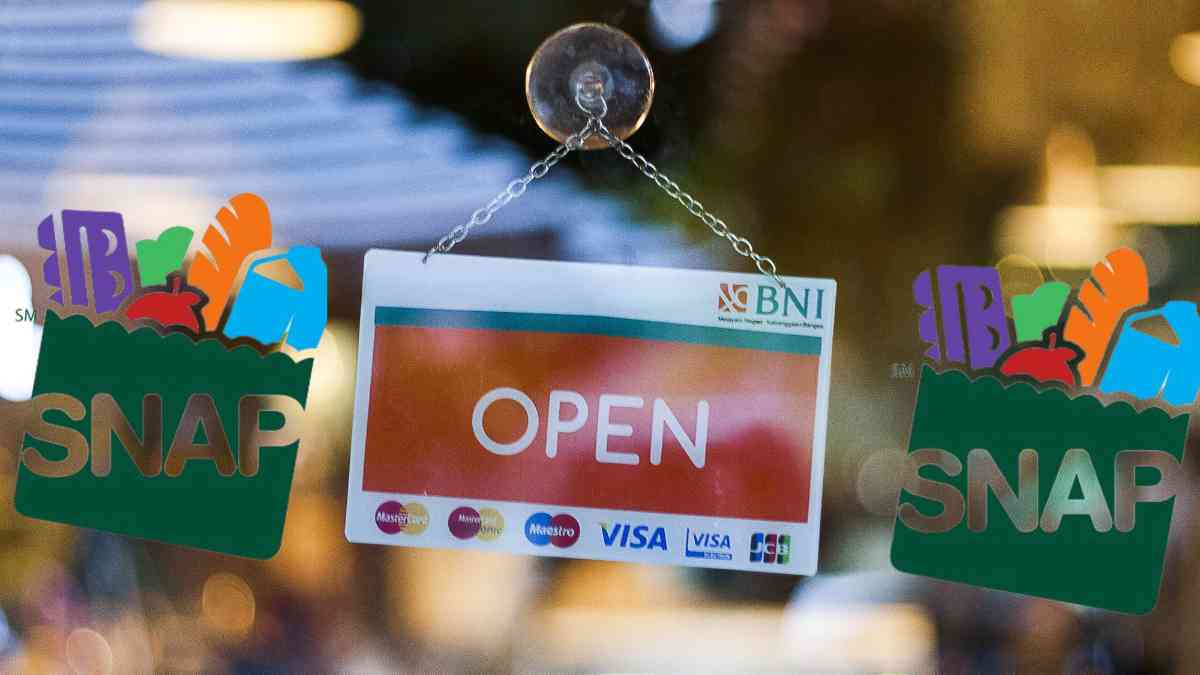Non-citizens living in the United States of America can sometimes claim monthly payments from the Supplemental Nutrition Assistance Program (SNAP) under certain conditions. So, what are these conditions and what do you need to know to get extra support?
This renewed Food Stamps is a federal assistance program designed to help families and individuals who cannot afford to buy groceries since prices are too high for them. This program, which is administered by the United States Department of Agriculture (USDA), provides money via Electronic Benefit Transfer (EBT) cards, assisting millions in meeting their feeding needs.
Eligibility for Non-Citizens
When it comes to non-citizens, the eligibility criteria are specific:
- Lawfully present non-citizens are eligible to claim SNAP benefits, according to the USDA.
- Undocumented non-citizens are not eligible for SNAP benefits.
- Students and tourists are also ineligible to claim these benefits.
While lawfully present non-citizens can access benefits, they must still meet unique eligibility criteria. However, it’s important to note that all children under the age of 18 are eligible for the scheme, regardless of their citizenship status.
This structured approach ensures that SNAP benefits reach those in need while maintaining clear guidelines on eligibility.
Understanding eligibility for the Supplemental Nutrition Assistance Program (SNAP) can be complex. However, certain groups can claim eligibility immediately, provided they meet both the financial and non-financial criteria. Let’s dive into who qualifies and the specific conditions that apply.
While SNAP primarily serves U.S. citizens, non-citizens can also qualify under certain conditions. It’s essential to understand these criteria to determine if you or someone you know may be eligible for this vital support.
What can SNAP buy?
Funds provided by SNAP can be used to purchase a wide variety of food items, including:
- Fruits and vegetables
- Bread and dairy products
- Meat, poultry, and fish
- Non-alcoholic beverages
However, there are restrictions on what you can buy with Food Stamp benefits. These funds cannot be used to purchase:
- Non-food items
- Alcohol or tobacco
- Vitamins and supplements
- Hot prepared foods
- Meals at restaurants (with some exceptions for elderly or disabled individuals)
Understanding the specific conditions and restrictions of SNAP can help non-citizens better navigate the process and access the support they need. If you meet the eligibility criteria, Food Stamps can be a vital resource in ensuring you and your family maintain a nutritious diet.
Imagine having a card that works just like a debit card, but instead, it provides you with essential benefits every month. This is exactly how the EBT card operates. Recipients receive an EBT card loaded monthly with benefits, which they can use by swiping at checkout and entering a PIN to pay for eligible food items at approved stores and suppliers.
Who Can Claim SNAP Benefits?
Food Stamps, or the Supplemental Nutrition Assistance Program, currently supports approximately 42 million people in the United States. The exact number of recipients tends to fluctuate, especially during times of economic hardship. For instance, there was a notable increase in SNAP beneficiaries during the Covid-19 pandemic and following natural disasters.
Groups Immediately Eligible for SNAP
The following groups can claim immediate eligibility for Food Stamp benefits:
- Refugees
- Individuals granted asylum
- Victims of severe trafficking
- Individuals with deportation withheld
- Amerasians
- Cuban and Haitian entrants
- Iraqi and Afghan special immigrants (SIV)
Additional Eligible Groups
Certain American Indians born abroad also qualify for immediate eligibility. This includes:
- Hmong or Highland Laotian tribal members
- Compacts of Free Association (COFA) citizens of the Federated States of Micronesia, the Republic of the Marshall Islands, and the Republic of Palau
Five-Year Waiting Period
For some groups, there is a mandatory five-year waiting period before they can claim Food Stamp benefits. These groups include:
- Lawful permanent residents (LPR) or Green Card holders
- Individuals granted parole for at least one year
- Conditional entrants
- Battered non-citizens
Exceptions to the Waiting Period
In certain cases, the five-year waiting period may not apply at all. Immediate eligibility is granted if the individual is:
- A child under 18 years old
- Blind or disabled and receiving benefits for their condition
- Lawfully residing in the U.S.
Understanding these eligibility criteria can help streamline the application process and ensure that those who qualify for SNAP benefits receive the assistance they need without unnecessary delays.
